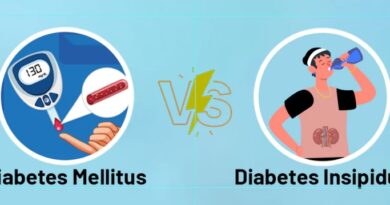Plant-Based Diets and Diabetes: What You Need to Know

Research suggests that reducing animal products in your diet can have health benefits, but it’s essential to approach this change correctly if you have diabetes.
Maintaining a sustainable, healthy diet is key to managing diabetes. It’s crucial to focus on quality sources of protein, carbohydrates, and fats, along with sufficient nutrients and fiber, to keep your energy levels stable. A plant-based diet—emphasizing legumes, whole grains, vegetables, fruits, nuts, and seeds while minimizing or eliminating animal products—has been linked to various health benefits, including positive impacts on physical and environmental health. Additionally, replacing meat with plant-based options can be cost-effective. But is a plant-based diet a good choice for those with diabetes? Here’s what you need to know and how to get started.
Plant-Based Diet and Diabetes
Yes, a plant-based diet can be beneficial if you have diabetes. Research indicates that it can improve blood sugar management and reduce the risk of complications like heart disease. A study published in Nutrition & Diabetes showed that participants with chronic conditions like diabetes saw significant improvements in BMI and cholesterol levels over six months, with benefits persisting even after a year.
However, as you transition to a plant-based diet, it’s important to maintain the principles of healthy eating for diabetes, particularly regarding carbohydrate balance throughout the day. A bit of knowledge can set you up for success. Here are some tips for adopting a plant-based diet if you have diabetes.
Tips for Adopting a Plant-Based Diet with Diabetes
Diversify Your Protein Sources
You might worry about getting enough protein without meat, but rest assured—most people meet their protein needs regardless of their diet. The key is to diversify your plant-based protein sources beyond just tofu. Foods like seitan, whole grains, legumes, nuts, and leafy greens are excellent vegan protein options. Recipes like Quinoa Avocado Salad or Sweet Potato-Black Bean Burgers can help you meet your goals while enjoying your meals.
You don’t have to go entirely plant-based to reap the benefits. If you’re curious, start by replacing a few meat-based meals each week with plant-based alternatives. For example, try Beefless Vegan Tacos or Mushroom & Tofu Stir-Fry instead of traditional meat dishes.

Opt for Complex Carbohydrates
Consistent intake of complex carbohydrates is vital for managing diabetes, regardless of whether you consume animal products. Complex carbs are rich in vitamins, nutrients, protein, and fiber, helping you feel full and satisfied. Fiber, in particular, is crucial for slowing digestion, which helps regulate the rate at which glucose enters your bloodstream, keeping blood sugar levels stable and preventing energy crashes.
Fortunately, complex carbs are plant-based. Incorporate whole grains like brown rice, oats, whole-wheat bread, or whole-wheat pasta into your meals. Snack on popcorn or whole-wheat crackers. Fruits, vegetables, and legumes are also excellent sources of complex carbs and are foundational to a healthy plant-based diet.
Limit Highly Processed Snacks
Don’t be fooled by vegan labels—highly processed snacks are still processed snacks. Whenever possible, stick to whole foods like celery or fruit with nut butter, pita with hummus, or roasted chickpeas, all of which are great for curbing hunger and maintaining energy. Nuts and seeds are also convenient, shelf-stable snack options. Pair a complex carb with protein and fiber for a balanced snack.
If you like to prepare in advance, consider plant-based snack recipes like Savory Date & Pistachio Bites, Garlic Hummus, Everything Bagel Microwave Popcorn, or Strawberry-Pineapple Smoothie. Preparing these in batches can help you stay on track during busy weeks.
That said, there are healthy packaged snacks available, and their convenience is hard to beat. When shopping, check nutrition labels and choose snacks with minimal added sugar, sodium, and saturated fat.
Focus on Key Nutrients
While it’s entirely possible to meet your nutritional needs on a plant-based diet, you may need to be strategic if you’re fully plant-based. Certain nutrients can be harder to obtain, so it’s important to ensure your diet includes them.
Vitamin B12 is typically found in animal products like eggs, meat, and fish. However, fortified plant-based foods such as certain breads, cereals, soy products, and plant-based milks (like almond, rice, hemp, and coconut) can provide B12. Nutritional yeast is another excellent source and can be sprinkled on popcorn or other dishes.
Iron is another nutrient to watch. Include plenty of leafy greens, whole grains, and legumes in your diet. Pair iron-rich foods with vitamin C-rich foods like citrus, tomatoes, bell peppers, and berries to enhance iron absorption.
Bottom Line
You can absolutely try a plant-based eating pattern or go fully plant-based if you have diabetes. In fact, it might help you manage your condition if it’s a way of eating you enjoy. Being strategic and informed can make a big difference. These tips will guide you in pursuing a plant-based diet while ensuring you meet your nutritional needs.



